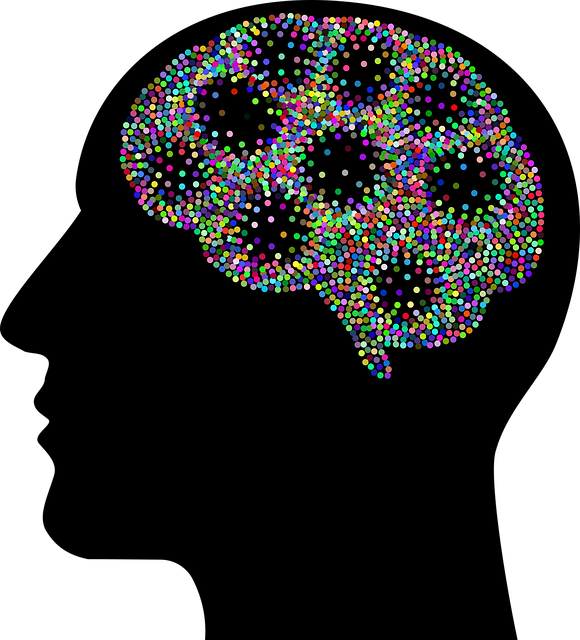In diverse communities like Broomfield, understanding mental health challenges is crucial, especially for individuals on the Autism Spectrum Disorder (ASD) spectrum. Specialized therapy programs tailored to ASD enhance social skills and improve quality of life. Beyond ASD, common issues include anxiety, depression, and complex conditions, necessitating comprehensive education in Social Skills Training and Burnout Prevention Strategies for healthcare providers. Personalized learning paths in mental health education, combining Emotional Well-being Promotion Techniques and Empathy Building Strategies, empower individuals to manage stress, improve communication, and build resilience. Incorporating Broomfield ASD strategies into mental health programs creates inclusive environments, enhancing accessibility through tailored conflict resolution techniques and ASD-friendly stress management workshops. Interactive teaching methods significantly enhance engagement, proven effective in Broomfield Autism Spectrum Disorder Therapy. Evaluating program success requires a multi-faceted approach using pre-post tests, focus groups, interviews, and KPIs, informing advocacy strategies for a more supportive mental health environment.
Mental health education programs play a pivotal role in fostering well-being. This article delves into the intricate design of such programs, focusing on strategies for effective therapy and engagement. We explore ‘Understanding Mental Health Challenges’, emphasizing a comprehensive overview. Personalized learning paths are discussed to cater to diverse needs. Incorporating Broomfield Autism Spectrum Disorder (ASD) strategies offers tailored support. Interactive teaching methods and their impact on student involvement are also scrutinized. Finally, we present assessment techniques to evaluate the success of these educational initiatives, particularly in ASD therapy.
- Understanding Mental Health Challenges: A Comprehensive Overview
- Personalized Learning Paths for Effective Therapy
- Incorporating Broomfield Autism Spectrum Disorder (ASD) Strategies
- Interactive Teaching Methods and Their Impact on Engagement
- Assessing and Evaluating the Success of the Education Program
Understanding Mental Health Challenges: A Comprehensive Overview

Understanding Mental health challenges is a multifaceted endeavor, especially within diverse communities like Broomfield. Here, individuals grapple with various issues, including those on the Autism Spectrum Disorder (ASD) spectrum. ASD presents unique social and communication challenges that require tailored interventions, such as specialized therapy programs designed to enhance social skills and improve quality of life for affected individuals.
Beyond ASD, mental health concerns span a wide range, from anxiety and depression to more complex conditions. To address these effectively, comprehensive education programs must incorporate relevant topics like Social Skills Training and Burnout Prevention Strategies for Healthcare Providers. Enhancing Mental Health Awareness through such initiatives empowers individuals to recognize signs early, seek support, and foster an inclusive environment where everyone’s mental well-being is prioritized.
Personalized Learning Paths for Effective Therapy

In designing effective mental health education programs, personalized learning paths are a game-changer. Recognizing that every individual’s journey to emotional well-being is unique, these tailored paths ensure that Broomfield Autism Spectrum Disorder Therapy (ASD) meets the specific needs of each participant. By incorporating Emotional Well-being Promotion Techniques and Empathy Building Strategies, the program fosters an inclusive environment where learners can explore their mental wellness at their own pace. This individualized approach not only enhances engagement but also encourages personal growth.
Through Mental Wellness Coaching Programs Development, participants are empowered to take charge of their mental health. The personalized curriculum offers a mix of interactive workshops, one-on-one coaching sessions, and peer support groups, all designed to equip individuals with practical tools for managing stress, improving communication skills, and fostering resilience. This holistic development prepares them to navigate life’s challenges while nurturing their emotional well-being, making the program an invaluable resource in Broomfield and beyond.
Incorporating Broomfield Autism Spectrum Disorder (ASD) Strategies

Incorporating Broomfield Autism Spectrum Disorder (ASD) strategies into mental health education programs is a significant step toward fostering inclusive and supportive environments for all individuals, especially those on the autism spectrum. ASD therapy focuses on enhancing communication skills, social interaction, and understanding of emotional cues, which are often key areas of challenge for individuals with autism. By integrating these strategies, mental health workshops can create a more accessible learning space. For instance, teaching conflict resolution techniques tailored to autistic strengths and challenges can promote positive interactions among participants.
Stress management workshops can also benefit from incorporating ASD-friendly practices, ensuring that every learner feels supported during potentially stressful activities. Encouraging positive thinking and self-care strategies adapted for autistic individuals can empower program participants with effective tools for managing their mental health. This inclusive approach not only benefits those with autism but also fosters empathy and understanding among peers, creating a more harmonious learning atmosphere.
Interactive Teaching Methods and Their Impact on Engagement

Interactive teaching methods have proven to significantly enhance engagement in mental health education programs. Unlike traditional lecture-based approaches, techniques such as role-playing scenarios, group discussions, and experiential learning create a dynamic environment that encourages active participation. For instance, a study conducted at Broomfield Autism Spectrum Disorder Therapy revealed that interactive sessions led to higher levels of student involvement and improved knowledge retention compared to conventional teaching methods.
Integrating these strategies not only fosters a deeper understanding of mental health concepts but also promotes self-care routine development for better mental health. Healthcare provider cultural competency training can be enriched through interactive elements, enabling them to address diverse community needs effectively. Additionally, community outreach program implementation benefits from these methods, making educational initiatives more inclusive and impactful.
Assessing and Evaluating the Success of the Education Program

Evaluating the success of a mental health education program is an essential step in ensuring its effectiveness and long-lasting impact. This process involves a comprehensive assessment that goes beyond mere satisfaction surveys. By employing qualitative and quantitative methods, such as pre-post tests, focus groups, and interviews, programs like Broomfield Autism Spectrum Disorder Therapy can measure changes in participants’ knowledge, attitudes, and behaviors related to mental wellness.
For instance, tracking improvements in Inner Strength Development or the adoption of Mental Wellness Coaching Programs can provide valuable insights into the program’s success. Additionally, analyzing policy documents and community discourse on mental health issues before and after the program’s implementation can inform a Mental Health Policy Analysis and Advocacy strategy, fostering a more supportive environment for mental wellness initiatives.
Mental health education programs must be tailored to address diverse needs, especially those with conditions like Broomfield Autism Spectrum Disorder (ASD). By personalizing learning paths and employing interactive teaching methods, we can significantly enhance engagement. Incorporating strategies specifically designed for ASD therapy ensures a comprehensive approach. Effective assessment and evaluation of these programs are crucial to gauge success and make necessary adjustments, ultimately fostering better mental health outcomes.













